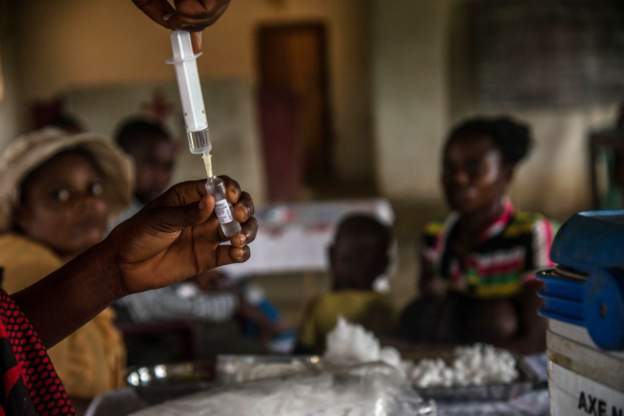A new report by the World Health Organization (WHO) revealed that an estimated 51.2 million lives have been saved through vaccines in the African region over the past 50 years.
For every infant life saved over that period, close to 60 years of life are lived, the report finds.
WHO said in a statement that “these achievements have been possible under the Expanded Programme on Immunization (EPI).”
This was a WHO initiative launched in 1974 as a global endeavour to ensure equitable access to life-saving vaccines for every child, regardless of their geographic location or socioeconomic status.
The report which assessed the life-saving impact of vaccines, was released on Wednesday at the start of this year’s African Vaccination Week and World Immunization Week being marked from 24–30 April under the theme “Safeguarding Our Future: Humanly Possible”.
With the continuous support from WHO, UNICEF and Gavi, the Vaccine Alliance and many others, today most countries in the region provide antigens for 13 vaccine-preventable diseases, up from the initial six when the EPI was introduced, the report said.
Notable achievements have been made, including reduction in measles deaths, with an estimated 19.5 million deaths averted over the last 22 years.
The region has also witnessed a sharp decline in meningitis deaths by up to 39% in 2019 compared with 2000.
Maternal and neonatal tetanus has nearly been eliminated in the region, and in a historic public health achievement, the African region was declared free of indigenous wild poliovirus in 2022 following years of relentless work to protect every child from the virus.
“From disease prevention to eradication, the success story of vaccines is a compelling one. Millions of people are alive and healthy today thanks to the protection vaccines offer,” said Dr Matshidiso Moeti, WHO Regional Director for Africa.
“We have half a century of momentum and have accomplished so much. Now we must sustain and expand vaccine equity to end the threat of vaccine-preventable diseases.”
The rollout of new vaccines such as the first ever malaria vaccine, and expansion of existing vaccines, such as for HPV, which protects against the leading cause of cervical cancer, has also set up future generations in Africa with an opportunity to thrive, the WHO highlighted in its statement.
UNICEF Regional Director for Eastern and Southern Africa, Etleva Kadilli said “Today we celebrate the monumental advances governments and partners have taken across Africa in the last fifty years to ensure so many more children on the continent are living past their fifth birthday thanks to vaccination.”
Gilles Fagninou, the UNICEF Regional Director for West and Central Africa also said “Children that are not, or not enough, vaccinated often come from communities missed across the spectrum of social services. We must focus our efforts on finding them and ensuring they receive the life-saving vaccines and other services they need. Together, with leaders and communities, we can make this a reality.”
Through Gavi, an alliance of immunization partners including WHO and UNICEF established in 2000 to expand the impact of the EPI, countries are supported to deliver vaccines against vaccine-preventable diseases including cervical cancer and malaria, and to respond to outbreaks of diseases such as Ebola and cholera.
Meanwhile efforts to address gaps in immunization coverage have been intensified through the “Big Catch-Up” initiative that aims to reach children who have been underserved or missed by routine vaccination programmes, according to the WHO.
Innovative initiatives such as the Zero-Dose Immunization Programme have also been established to reach communities that are living in conflict and fragile areas with essential health services.
Further efforts are needed to accelerate progress to meet the goals of Immunization Agenda 2030, a strategy endorsed during the WHO World Health Assembly in 2020, which seeks to reduce mortality and morbidity from vaccine-preventable diseases, ensure equitable access to vaccines and strengthen immunization within primary health care. A regional framework to implement the Immunization Agenda has been adopted.
Source: Africafeeds.com


